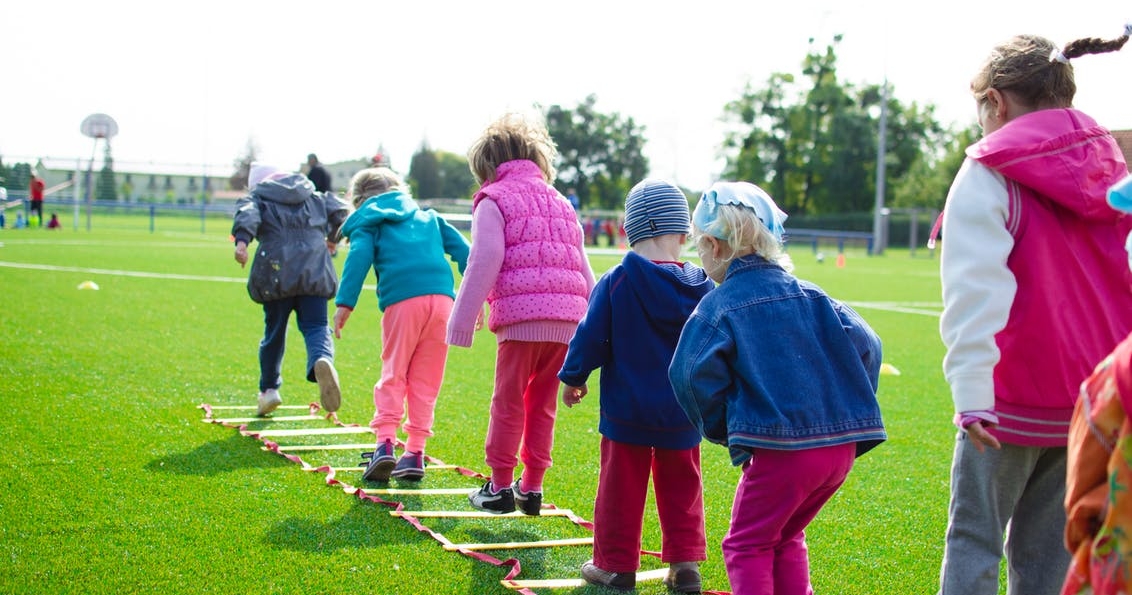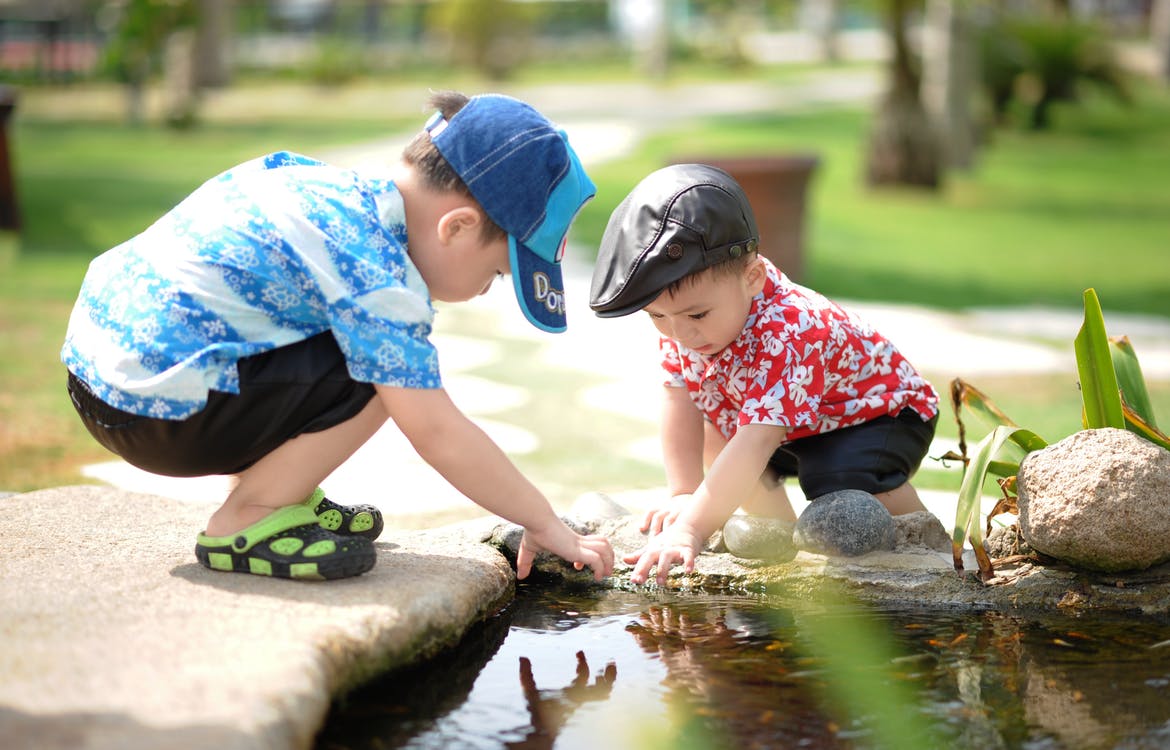Parents who know how to express their love so their children understand it and actually feel loved are a privileged group indeed.
Dear Reader, if you haven’t already read last week’s blog, The Five Love Languages for Parents, I heartily recommend it before reading this one. It contains some important basic principles you will need to understand in order to get the most benefit from today’s blog. Here’s the link: Blog 5LEhe.
How Children Love
Gary Chapman and Ross Campbell’s book, The Five Love Languages for Children, is highly recommendable.
Every Child’s “Mother Tongue” is Unique
Although our genes have a strong influence on our children, and our culture and surroundings are also significant factors, parental influence should not be underrated. Parents define their children’s ability to love, which is a deciding factor in their future happiness.
A mother’s love is the strongest influence on her children’s love languages. It may be that a mother who always loved her child suddenly hears from her adult son that he never felt loved. What went wrong? Evidently the transfer of love from mothers to children is not an automatic process. So it’s a subject worth looking into.
As a quick reminder, the five love languages are as follows:
words of affirmation
physical touch
quality time
receiving gifts
acts of service.
Clearly, the children of parents who can “speak” all five love languages will benefit greatly. In spite of this fact, it is also important for mothers to recognize and promote the development of her children’s best, or favorite, love languages.
Few parents realize that by teaching their children self-discipline, they are binding their hearts to their own. The two key words here are
kindness & consistency.
Children who learn discipline are privileged. They will be a benefit to society and will themselves produce good fruit. Of course, love must be the basic motivator and, if possible, all the love languages must be practiced.
Playing games is a good way to practice self-control. Respect for rules, being considerate of one another and accepting results are all beneficial skills that can be learned. When children develop joy in achievement, that’s a good thing, but they should never learn to believe their parents’ love is a product of their achievements.
Parental Limits
Example: Kevin
Something was not quite right with Kevin. He had been a good student, but lately he had been having a hard time. He needed things to be explained several times. Something must have deflated his motivation to learn. His social behavior was also declining, and he was getting into more fights with his classmates. Interestingly enough, he always wanted to be near his teacher. What had happened?
When Kevin’s teacher spoke to his parents, she discovered some changes that had transpired in the last five months. Both Kevin’s parents had suddenly taken on more work and because of these new circumstances they had less time to spend with Kevin. Together, they decided to spend more quality time with him. In a very short time, Kevin’s love tank was full again and he was back to his old self.
Love Tank
Children can only develop positively if they feel loved and secure. That’s why it is important to communicate love to them in their own love language, and that they receive clear signals.
Although every child has a unique mix of love language needs, quality time together is somewhat of a wildcard, in that every child needs a close relationship with his or her parents. And time spent one on one with a child is the fastest sure-fire method of filling his or her love tank.
Pets can fill one’s love tank too. For many people, it’s their only option.
Unconditional Love
Unconditional love is “fuel” needed to fill a child’s love tank. See blog BL-Liebe. All development and motivation to learn depends on the state of one’s love tank. If a child’s tank is always running on EMPTY, it will be seen in his or her behavior and performance. Parents have a tendency to get impatient and can even punish a child whose performance fails. This is counterproductive. The more love a child has in his or her tank, the more he or she can benefit from a well-directed punishment.
If parents don’t learn to love unconditionally, their children will not feel loved. See Blog.
The most important question a child needs to have answered every day is, “Mommy, do you love me? Daddy, do you love me?” The more this daily question receives a positive response, the more willing a child will be to be guided and trained by his or her parents. If the tank remains empty, resentment, opposition, demotivation and escapism will be the natural result.
Healthy Self-Worth
Many are thrilled to play with toddlers, but as soon as they get older and more challenging, their magical magnetism fades. It’s not their fault. Parents who can enjoy their children in every phase of life are much happier parents, and their children are also much happier.
Neither an overestimation of one’s own capabilities (I’m better than others), nor self-doubt (I’m not a good, smart or attractive) is the goal of education, but a healthy balanced self-evaluation. Children’s self-worth generally comes from their mothers. If she is healthy and mature with love in her tank, this will be seen in her children. If she is stressed, over-challenged, learning-resistant, fearful and full of feelings of inferiority, she must do everything she can to get into balance.
Children who are only loved when they perform (see BLOG B-Liebe) will begin to manipulate and try to control their parents when they reach puberty. When their will is crossed, they react with love deprivation, which is the method they learned from their parents. Their parents are shocked by their behavior, because they expect gratitude. Unfortunately, they missed their opportunity to lay an appropriate foundation.
Exemplified Love
Although most parents love their children, there are relatively few children who grow up knowing they are unconditionally loved. It is therefore extremely important for parents to understand how to convey their love to their children. It’s not enough to say, “I love you” or give them a gift now and then.
Children are not as impressed by words as by behavior. One advantage in this is, when you don’t feel like talking, a hug may be a good solution.
When fathers and mothers are equally committed to the education of their children and strive to reach worthwhile goals together, it is a very good sign that they are on the right track. One day their children will shower them with gratitude.
What is your child’s love language?
Toddlers
It is difficult to recognize a child’s love language in the first five years. One might try to guess. In this time it is important to be affectionate, praise their behavior (not their person), and give them encouragement. Spend a lot of time with them. Surprise them with small gifts or tokens of your love. Enjoy your children and express your joy openly.
When you, as a mother, observe your child, you may notice a difference in his or her reaction to your voice. One child may relax, while another may ignore his or her mother’s voice. Sometimes the very presence of a person can quiet a child, while others hardly notice. You may also notice how the negative use of a child’s favorite love language can deeply wound him or her.
Small children have to learn how to love and be loved. They try out various behaviors to find out what they like best. Just because they do something once or twice doesn’t necessarily mean they will stay with that behavior.
As we said, in the early years, all five languages must be practiced. However, once the child’s favorite love language has been discovered, parents would do well to practice “speaking” it with them.
Toddlers learn best through playing; their cognitive skills are not developed until later. They don’t need a lot of gadgets. It’s better to have a few simple toys, high in quality. Less is more. It’s good for children to spend more time playing with fewer things. Nature is the best place for this.
Discovering the Love Language
Your children should not know you are trying to discover their love languages. They might be tempted to exploit the situation. Gifts can destroy love, when they are used to manipulate. Here are a few tips:
Notice how your child expresses love to you.
Observe your child’s behavior with others.
Remember what your child asks for most often.
Figure out what your child complains about most.
Give your child some alternatives and note his or her choice.
Examples of Alternatives
5-9 Years
"Shall I bring you a gift when I come home from my trip? Or shall I call you sometimes while I’m away?" (Gift or Quality Time)
"Shall we play together? Or shall I repair your bicycle?" (Quality Time or Acts of Service)
10-14 Years
"Would you like to have a new bicycle for your birthday? Or shall we take a trip together?" (Gifts or Quality Time)
"Shall I repair your computer? Or shall we go and play soccer together?" (Acts of Service or Quality Time/Physical Contact)
Teenagers
"Would you rather have a back massage or shall we go for a walk?" (Physical Contact or Quality Time)
"Would you like to show me your report card? Or shall we go shopping and buy you a new pair of jeans?" (Praise or Gifts & Quality Time)
Teenagers whose love tanks are not full might ask their parents, “Mom, Dad, do you love me?" If their parents’ self-worth is low, they may fail the test and react with anger or sarcasm. This would be a negative answer to the question. When young people ask such questions, they are trying to understand love and to be loved. They need to be assured of their parents’ love in order to develop well.
Teenagers are especially challenged as they are confronted with the complexity of life. In order to make their way through all the difficulties, they need backing, a home where they feel safe and loved. It’s not always easy for parents to provide these things. In next week’s blog, we will find out more about that.
One sign of maturity is when a person is able to accept others and show them affection, using all five love languages.
We all have room to grow. Let us not put our heads in the sand and ignore our needs, but take advantage of every opportunity to develop. In our next blog, we will look at this subject in more detail.
Greetings from Ernst Zwiker











